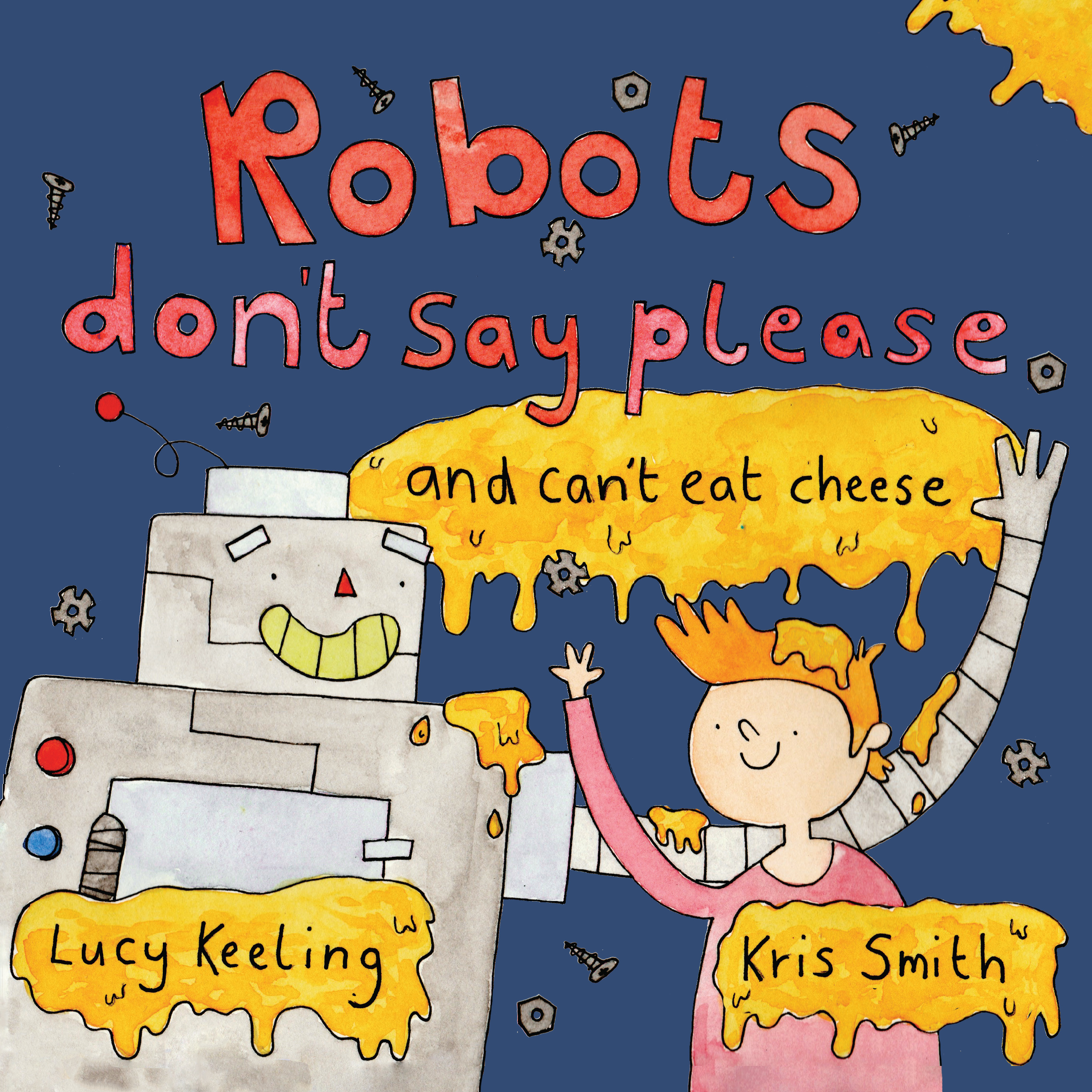Inspiring Young Readers
 posted on 01 Dec 2017
posted on 01 Dec 2017
Robots Don’t Say Please by Lucy Keeling, illustrated by Kris Smith
The world has changed considerably since William Wykeham first pronounced that ‘manners maketh the man’ in the 14th century, but this is the underlying message of this quirky picture book. Actually its mostly about ‘manners maketh the robot’ as his refusal to say please and thank you as required is what drives the plot of this rhyming picture book.
Robot lives happily with a boy called Barney and the two are clearly the best of friends as can be seen from the upbeat cover that shows them smiling at one another. Like so many children, even in these days of more readily available ice creams, on the first page they are excited by the sound of the Ice Cream Man’s chimes approaching. Barney screams ‘ I want ...’ and is sharply reminded by his mum that he needs to remember his manners and so he then asks her politely for a screwball. But when she asks what Robot would like he isn’t able to include a ‘ please’ as required and so doesn’t get his ice cream. I can just imagine many children reacting to this somewhat harsh treatment with a sense of outrage at injustice but also by responding with an understanding that rules must be followed. As Barney tells the perplexed Robot:
‘You have to say please, you shouldn’t think twice, if you want something good then you have to be nice’.
Despite mum’s insistence on good manners, the story continues to show us that they are a kind and caring family who are concerned when Robot urgently needs oil. The chaos and mess that ensues as they try to find and then apply the right oil to make him feel better gives a flavour of a cosy and co operative family home life. Unfortunately, Robot is again unable to show that he understands the social conventions of showing appreciation when he is suitably oiled and so has to be reminded by Barney:
‘ You have to say thank you, you know that its right, when people are nice you should be polite’.
We begin to wonder if Robot will ever be able to get the hang of all this, and I am intrigued as to whether some bright child might pipe up that he might need some reprogramming! How is he supposed to be able to say something that is outside his experience for goodness sake? But in this story, another domestic crisis seems to be the answer when he has a dramatic allergic reaction to eating cheese fondue:
‘ Robot began to shake and to shudder, steam started escaping, And he smelled like burnt rubber.
There were sparks and sizzles as Robot wheezed ...
ROBOT CANNOT EAT CHEESE. ROBOT
NEEDS YOUR ASSISTANCE ... PLEASE’.
Once again, a very concerned dad rushes to fix the problem and mum and Barney hug one another as they watch and wait anxiously for him to recover from his bad reaction. After a full reboot, all is well and Robot expresses his appreciation to them all by at last saying ‘Thank you’.
The colourful illustrations are cartoon-like and pleasingly naive which I think makes them very appealing to children who, in my experience, often tune-in positively to a style that looks familiar to their own drawing style. I really like the final page that shows the family huddled around Robot with everyone looking happy and harmonious.
This is another interesting picture book published by Tiny Tree that gives us more to think about than at first meets the eye. It seems that it is important to look after one another, not to take privileges for granted and to remember to always be polite and appreciative. It is also a great little story about what it might be like to have a Robot as part of the family which would inspire plenty of lively and imaginative discussion with children.
Karen Argent
December 2017